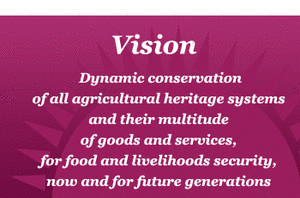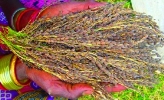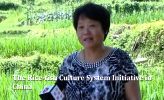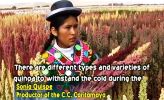
In order to safeguard and support the world’s agri-cultural heritage systems, in 2002 FAO started an initiative for the dynamic conservation of Globally Important Agricultural Heritage systems (GIAHS). The GIAHS Initiative promotes public understanding, awareness, national and international recognition of Agricultural Heritage systems. Looking to safeguard the social, cultural, economic and environmental goods and services these provide to family farmers, smallholders, indigenous peoples and local communities, the initiative fosters an integrated approach combining sustainable agriculture and rural development.




